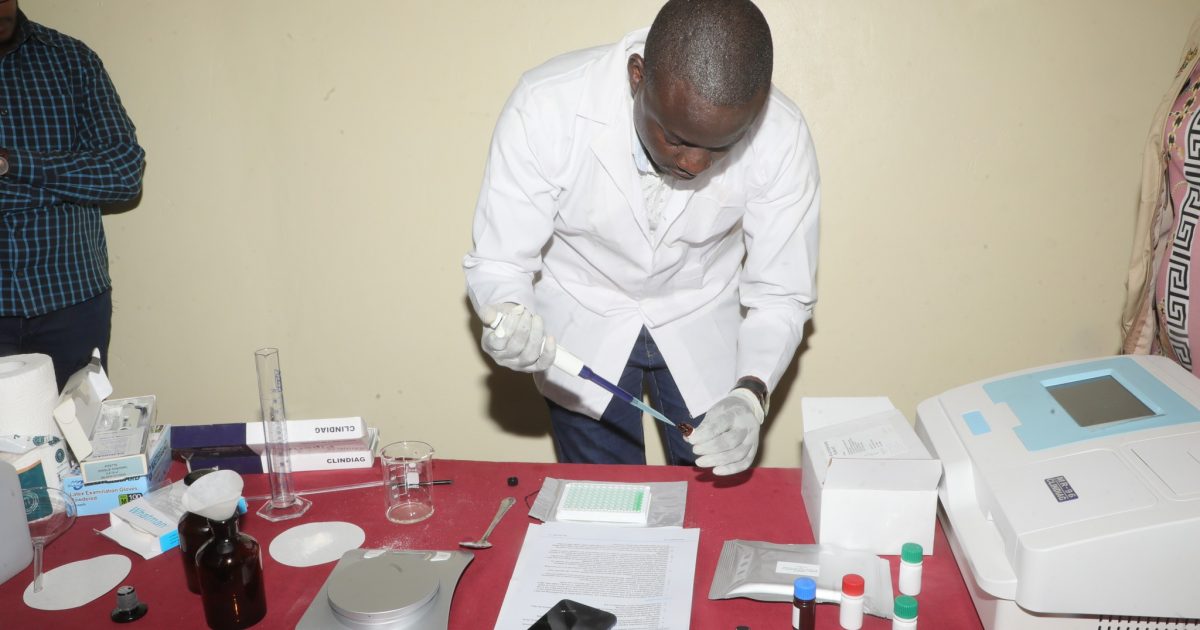As Taita Taveta County farmers look forward to a bumper harvest for the just-concluded short rain season, they also have a reason to smile following the introduction of a mobile aflatoxin test lab kit.
The kit donated by the Kenya Cereal Enhancement Programme Climate Resilient Agricultural Livelihoods Window (KCEP-CRAL) is ready for a rollout at the most opportune period as farmers begin harvesting across different parts of the county.
Speaking in Voi when he received the donation from KCEP-CRAL officials, Eric Kyongo, the County Executive Committee member for Agriculture, Livestock, Irrigation, & Blue Economy, lauded the move as a timely intervention that will help farmers cut on post-harvest losses.
He further added that training on the use of the kit was already underway with the first batch of trainees being officials from the County Public Health department and County Veterinary Unit before being rolled out on a large scale to reach every farmer.
Chemboi Kiprotich, lead KCEP-CRAL value-chain development officer, stressed the importance of eliminating, in its entirety, post-harvest losses and ensuring that farmers enjoy the full benefits of the fruits of their labour.
Chemboi added, “This is an incentive for farmers to join cooperatives and enjoy the benefits that come with large economies of scale,” and rallied the relevant department to continue registering farmers and urging them to join umbrella unions that champion their cause.
He revealed that the programme has and continues to lay a robust policy and infrastructural framework to build value-addition capacities at the grassroots and channel the benefits to the small farmer.
Taita Taveta County is not a stranger to post-harvest food losses as a 2021 study that covered Tharaka-Nithi, Kitui, Makueni, Machakos, and Taita Taveta showed that post-harvest green grams and banana losses stood at Sh15 billion and Sh2 billion respectively.
According to a report by the Food and Agriculture Organization (FAO), Kenya loses approximately 30 percent of its agricultural produce in the after-harvest phase, translating to a loss of almost Sh72 billion in every harvest season.
Breaking the numbers further, the report indicated that 20 percent of the losses happen at the farm level, with 60 percent occurring at the market stage; hence the need to create systems that prevent, reduce, and, in the long run, stop the avoidable losses.
By Arnold Linga Masila




